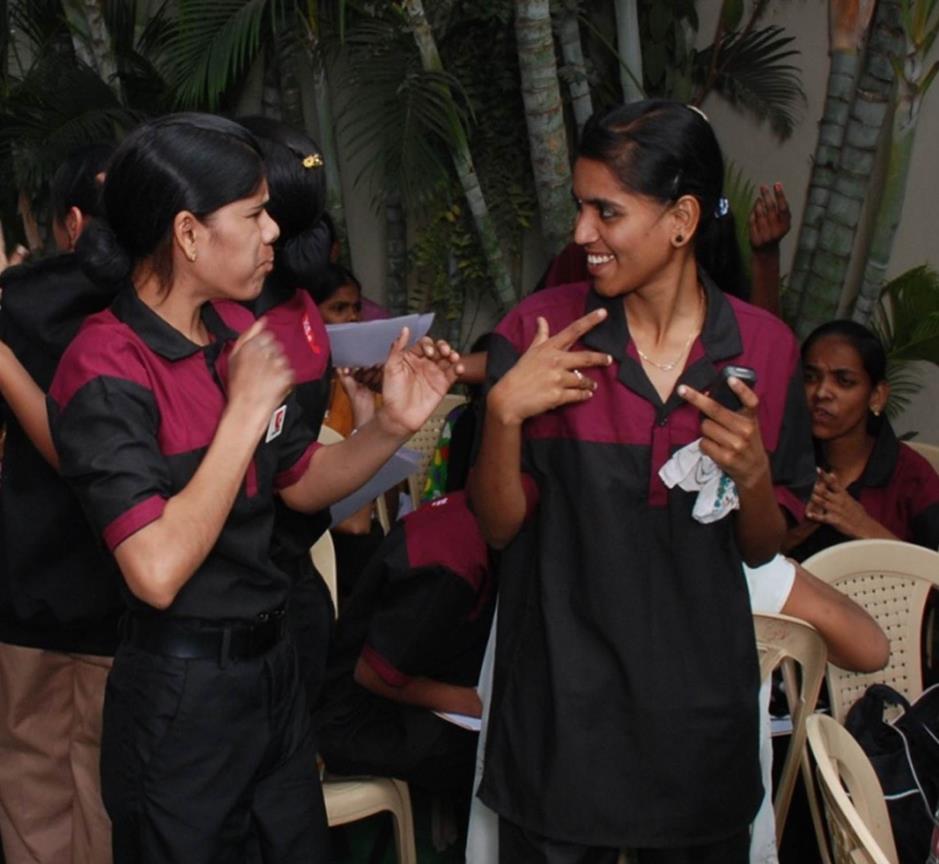Fighting unemployment from two sides: with training centres and by influencing legal frameworks
- Solution
- Centre for Persons with Disability Livelihoods (CPDL)
- Organization
- Youth4Jobs Foundation
- Country of Implementation
- India
- Region
- Asia & Pacific
- Subregion
- South Asia
- Start Year
- 2012
- First published
- 31.01.2017

Solution details
People
“I am happy to have a job that will help me expand my mother’s small store beyond my village.” Indiramma, a Youth4Jobs trainee
The Youth4Jobs (Y4J) Foundation sets up employment-linked training centres for young people with disabilities, most of whom are from rural areas and all are from poor families. Since its start in 2012, Y4J has scaled-up its model from one state to 10 states, and has trained approximately 9,000 youth with disabilities.
Problems Targeted
Young people with disabilities living in India’s rural areas have no access to education and employment, and consequently no opportunity for independent and decent living.
Solution, Innovation and Impact
The Youth4Jobs Foundation set up the Centre for Persons with Disability Livelihoods (CPDL) as a public-private partnership in association with the Society for Elimination of Rural Poverty, which was established as an autonomous society of the Department of Rural Development by the Andhra Pradesh State Government to implement rural development projects in a professional and accelerated manner. Y4Jestablishes centres to provide vocational training to young people with disabilities from rural areas and at the same time they approach companies to employ these young people once they have been trained. Graduates of the programme find jobs in such sectors as information technology, manufacturing, hospitality, healthcare, and retail, and are paid at least open market salaries – often more. Due to State Government participation in the programme, Y4J has been able to influence the legal framework towards pro-disability policies. For instance, a policy was passed that all rurally located computer-operator jobs in the National Rural Employment Generation Scheme (a social security scheme that aims to provide employment to rural communities and labourers) have to be filled by persons with disabilities. This resulted in jobs for people with disabilities close to their homes.
Funding, Outlook and Transferability
The CPDL model has an annual budget of approximately €700,000. It can serve as a role model of government policies that effectively create jobs for young people with disabilities in the open labour market and how the government can act as a facilitator. On its own, the Youth4Jobs Foundation has strengthened the CPDL model, adding new dimensions with lessons learned from the field and from companies, and has rolled-out a nationwide programme. In 2016, Y4J has 21 centres in ten states, and 40 per cent of persons trained are women from impoverished rural areas.
Media
Related information
- Connections
- 1
-
Organization